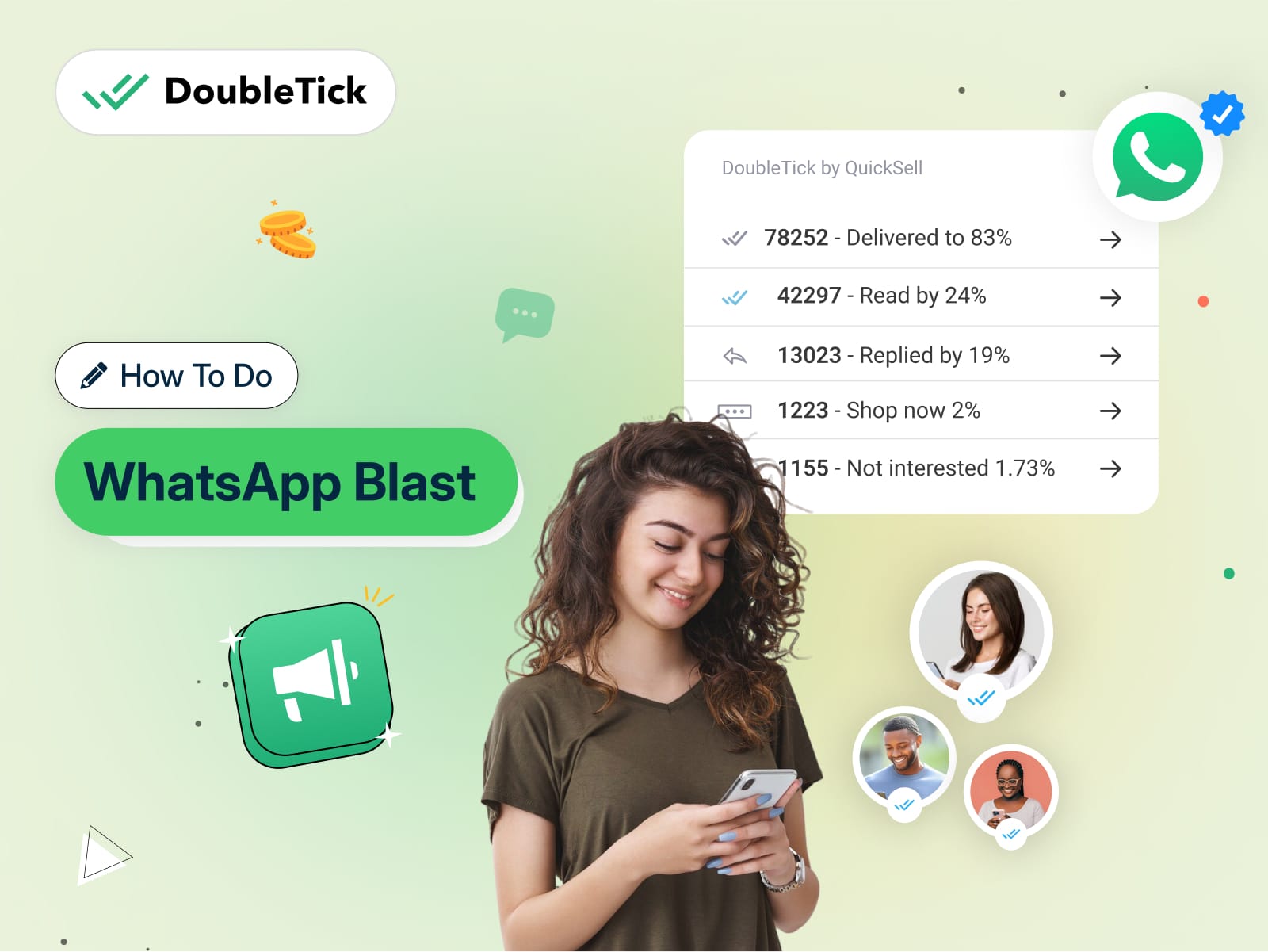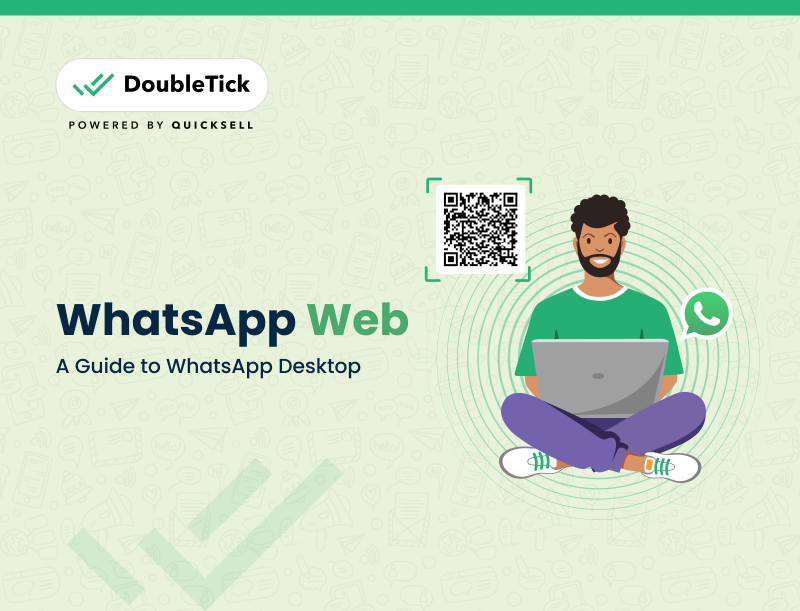Contents
- Introduction to utilizing WhatsApp for research collaborations
- Benefits of using WhatsApp for research collaboration
- Real-time communication for timely analysis
- Easy file-sharing and quick feedback
- Reduced communication costs and increased accessibility
- Setting up a WhatsApp group for research collaboration
- Creating a group and adding members
- Defining group norms and expectations
- Maintaining professionalism and respect in the group
- Strategies for effective research collaboration on WhatsApp
- Best practices for using WhatsApp for research collaboration
- Storing and organizing shared data
- Backing up important conversations and data
- Maintaining data privacy and security
- Conclusion: Summary of the advantages and potential drawbacks of using WhatsApp for research collaboration.
- Frequently Asked Questions
Introduction to utilizing WhatsApp for research collaborations
Researching with WhatsApp is possible in today's hyper-connected world. It is available on smartphones, enabling research teams in different locations to connect. This platform has potential for sharing insights and understanding between researchers.
Groups, broadcast lists, video calling, and audio messages can be used for communication. Groups provide a platform for discussion and broadcast lists let researchers share updates with multiple people.
WhatsApp also has End-to-End encryption, so data is secure.
Ohio University researchers have used WhatsApp for studies on how people around the world make sense of their environment.
WhatsApp is transforming the way researchers interact - from collecting data to interpreting it and communicating with stakeholders.
Smartphones and WhatsApp are all that's needed for research now!
Benefits of using WhatsApp for research collaboration
In the realm of research collaboration, utilizing WhatsApp can prove to be a highly effective solution. Benefits of this platform include faster communication, real-time information exchange, and the ability to keep track of conversation history. Additionally, WhatsApp allows for the sharing of documents and other resources, facilitating group analysis and boosting productivity. Furthermore, it is highly accessible, with the ability to connect researchers no matter their location. The platform also allows for establishing a sense of community within the research team, which can foster more extensive engagement and deeper insights.
Did you know that according to a study from the Pew Research Center, around 42% of Americans are likely to use WhatsApp daily? This shows the widespread use of the app and the potential reach of leveraging it for research collaboration.
Who needs a crystal ball when you have WhatsApp for real-time communication and timely analysis?
Real-time communication for timely analysis
For their research to be effective, researchers need real-time communication for immediate response and feedback. WhatsApp allows for quick sharing of data and ideas, creating a collaborative environment. It offers group chats, file sharing, voice messaging, and audio calls, regardless of time zones.
Via smartphones running almost any system, researchers can discuss ideas on-the-go or out of office. WhatsApp enables idea generation and joint problem-solving while keeping decision-making transparent; the messages are encrypted end-to-end, protecting users' privacy.
This is especially important when exchanging information related to sensitive data. The pandemic has changed research, and WhatsApp keeps researchers connected and informed about developments in their field, without risking infection.
In short, WhatsApp simplifies cross-team collaboration, promoting prompt communication across borders. Don't miss out on staying in step with colleagues worldwide: incorporate the app into your work routine!
Easy file-sharing and quick feedback
WhatsApp can be a great tool for researchers, making data-sharing and feedback easier. Here are the key benefits:
- File Transfer: You can share files up to 100MB with WhatsApp, perfect for research data.
- Collaboration: Create group chats to quickly get feedback from team members.
- Efficiency: Get instant messaging when you don't have time for emails.
Set up project-specific groups for easy info-sharing and collaboration. This increases scientific info dissemination.
Dr. David Moher from the University of Ottawa's Department of Epidemiology and Community Medicine found that ResearchGate and WhatsApp were widely used by doctorate holders.
No need for pigeons - collaborate on WhatsApp without fuss or fussing!
Reduced communication costs and increased accessibility
WhatsApp-facilitated collaboration reduces operational expenses and increases access for research teams. Team members can swap messages, share multimedia, and talk on big projects. Colleagues can interact, no matter where they are - boosting productivity!
Additionally, using WhatsApp for research cuts down on face-to-face communication costs like travel and venue fees. The messaging platform provides flexibility for remote researchers and busy schedules.
Plus, WhatsApp documents conversations and decisions throughout projects, giving easy access to reference material. Universities around the world have adopted WhatsApp as their main mode of research team interaction - leading to improved group assignments and a better collaborative environment. Who needs a lab rat when you can have a WhatsApp group full of eager researchers?
Wanna know about WhatsApp Business API in detail? Here is your 2023 Ultimate Guide to WhatsApp Business API - Click Here to Read
Setting up a WhatsApp group for research collaboration
To establish a WhatsApp group for collaborative analysis, follow these six simple steps:
- Create a new group in WhatsApp and add all relevant team members to it.
- Assign an appropriate name to the group that relates to your research study.
- Carefully structure the group by organizing it in different sections for various discussions and brainstorming sessions.
- Set some ground rules to ensure that all group members communicate respectfully and professionally.
- Encourage active participation by posting regular updates, sharing recent findings, and asking for feedback from group members.
- Secure the group by having an admin who monitors the conversations, end the chat after the research project ends, and prevent any unauthorized access.
One important detail to note is that WhatsApp may not be a suitable platform for some sensitive or confidential research projects. However, it can be useful in sharing certain insights and gathering input from team members.Consider posting specific questions, posing hypothetical scenarios, and engaging in brainstorming sessions to achieve shared goals. Another way to foster collaboration is to provide constructive feedback to team members on their inputs and suggestions.Lastly, it is important to keep in mind that WhatsApp should only be used as an aid to research collaboration and not as a sole platform to conduct research. Nevertheless, it can be a valuable tool for sharing insights and communicating with team members.Creating a group on WhatsApp for research collaboration is like assembling a team of superheroes, but instead of capes and masks, they have smartphones and insightful minds.
Creating a group and adding members
To collaborate on a research project, make a WhatsApp group! Here's a five-step guide to do it:
- Open WhatsApp.
- Look for the chat icon in the bottom right corner.
- Choose 'New Group'.
- Add members from your contacts list. You can search for them or select one by one.
- Click 'Create' to finish and start chatting!
Remember: Rules, roles, and expectations are key for productivity. Don't miss the chance to join forces. Start now by setting up that WhatsApp group! And no crying laughing emoji overuse, okay?
Defining group norms and expectations
Creating a shared understanding between collaborators and setting expectations for behaviour and communication can increase productivity and effectiveness. Establishing clear guidelines for how team members should interact, make decisions and resolve conflicts can prevent misunderstandings and promote constructive dialogue.
It's important to begin the collaboration by discussing and defining group norms and expectations. This could be through a meeting or discussion where everyone has a chance to contribute. Writing down these expectations can help too, and be referred back to during the project.
By having clear norms and expectations, participants can feel more empowered and engaged. They'll have a shared understanding of how to work together, which can help them to address any issues that arise.
An example of this was with our research team when we worked with participants from different cultural backgrounds. We established guidelines for respectful communication, acknowledged cultural differences and shared decision-making responsibilities equally. This collaboration was productive and successful for all parties.
Maintaining professionalism and respect in the group
When working together in a WhatsApp group, it's important to stay professional and kind. Use appropriate language, no personal attacks and no derogatory comments. Keep on topic - don't veer off - to stop any misunderstandings.
Be conscious of your tone and how others will perceive it. Remain open-minded, patient and understanding. Don't post irrelevant info or excessive personal updates - this can distract from the purpose of the group.
To keep everyone on track, set up a code of conduct or guidelines. This'll help maintain good communication ethics and a high level of professionalism.
Strategies for effective research collaboration on WhatsApp
Effective Collaboration Techniques for WhatsApp in Research
To ensure effective collaboration when using WhatsApp for research purposes, researchers must adopt various techniques.
- Establish communication guidelines and a clear line of communication to minimize misunderstandings. This includes setting appropriate times to communicate and being responsive to messages.
- Use effective communication techniques, such as using clear and concise language, avoiding jargon, and using emojis to convey emotions effectively.
- Share information and files using either cloud storage apps or integrating other collaboration tools such as Google Drive and Dropbox.
- Ensure that data and communication security are maintained. Researchers should consider using encryption technology and passwords to protect data and information shared on WhatsApp.
Researchers must be cautious when sharing critical and sensitive information on WhatsApp. They can mitigate this by leveraging the platform’s effective security measures.
One researcher had faced a data breach that resulted in the loss of vital information due to a lack of appropriate security measures while using WhatsApp for research collaboration. The researcher learned the importance of protecting data and information using encryption, passwords, and other security measures.
Cut the fluff and get to the point - clear communication on WhatsApp leads to productive collaborations.
Clear and concise communication
For effective research collaboration on WhatsApp, use language that is both clear and concise. Be direct in your communication and avoid unnecessary phrases. Utilize Semantic NLP with the heading 'Clear and concise communication' to exchange ideas successfully.
To improve collaboration, be responsive, respectful, and transparent. Adhere to marking standards, such as grammar, to ensure clarity. Relying exclusively on text can cause ambiguity, so use better features when available. Make sure that your text is not too long and easy to understand, and consider using an online summarizer to condense complex information, improving clarity and facilitating better engagement with your audience.
Maintain politeness and professionalism when interacting. Avoid informal acronyms or slang, as these can strike a sour chord among colleagues.
When working together remotely, maintain a professional tone. Video calls can be cumbersome, so use text messages to keep team members up-to-date.
Explicit explanations help clear out ambiguity and boost clarity, leading to successful collaborations. Deadlines are the ultimate motivator, unless you're a procrastinator.
Setting goals and deadlines
For profitable collaboration, it's key to determine "desired outcomes and timeframes". Here are five steps for setting goals and deadlines well:
- Describe the research topic and pinpoint your objectives.
- Construct SMART Goals: Specific, Measurable, Achievable, Relevant, Time-bound.
- Choose realistic deadlines based on complexity and importance.
- Put together the project's milestones and the last dates of essential stages.
- Spread this info throughout the group to ensure everyone follows timelines and priorities.
It's vital to avoid ambiguity. For instance, understanding what a 'successful outcome' is. A goal could be too big or wide. By cutting it into smaller sub-goals that steer towards the main objective, you create more chances of success. Ensure everyone knows their role in hitting their objectives.
Pro Tip: When assigning goals and deadlines on WhatsApp, schedule extra time for changes as some unforeseeable issues might appear.
Want to guarantee your team isn't lagging behind with research tasks? Use WhatsApp to assign them and prevent the 'I thought you were handling that' situation.
Assigning tasks and tracking progress
For top-notch research collaboration on WhatsApp, it's important to appoint tasks and supervise progress. Try these tips:
- Allocate precise roles and duties to each team member
- Divide tasks into small parts with deadlines
- Try task management tools like Trello or Asana to oversee progress
- Have regular check-ins and standup meetings to discuss status reports
- Promote transparent chat on done tasks, forthcoming steps, and any issues encountered.
Remember to consider individual workloads when allocating responsibilities. Employing these strategies can result in a more effective and orderly workflow.
Fun Fact: In 2021, IDC research shows that 50% of the global population will use WhatsApp and other mobile messaging apps. WhatsApp may have replaced the water cooler, but these practices will make sure your research collaboration doesn't go down the drain!
Best practices for using WhatsApp for research collaboration
When using WhatsApp for collaborative research, it is essential to follow certain techniques and best practices that assist in effective communication and sharing of insights. These practices help research teams avoid pitfalls and enhance productivity. One best practice is to define clear communication guidelines and expectations from the outset. Another essential practice is to establish a secure and reliable backup system for shared files and data. It is essential to ensure that all team members adhere to stringent data privacy policies. Additionally, teams must establish a way to disseminate and review findings at regular intervals.
For collaborative research on WhatsApp, it is necessary to cultivate a supportive and respectful team atmosphere. Members should focus on clear and concise communication and avoid engaging in lengthy tangents or off-topic discussions. It is also crucial to establish clear channels for feedback and peer reviews. All members should appreciate the project's sensitivity and prioritize timely responses while respecting others' schedules. With these best practices in place, teams can ensure successful collaborations and generate meaningful and impactful research insights.
It is unique to leverage WhatsApp as a collaborative tool in research due to its widespread accessibility and convenience. Researchers worldwide have used it for essential data gathering and analysis. With the app's secure, encrypted messaging platform, researchers can use it to discuss sensitive data safely. Additionally, WhatsApp's multimedia sharing options have proven useful to share images, videos, and audio recordings from the field on the go. As a result, it has become a valuable tool for researchers in diverse fields.
One case in which WhatsApp played a crucial role was in the case of Indian scientists tracking the spread of Covid-19. They created a tool that utilized a WhatsApp chatbot to connect doctors and researchers. The chatbot facilitated quick and efficient sharing of critical patient data, allowing researchers to identify patterns and establish national insights regarding the spread of the virus. The initiative resulted in a transparent, reliable, and efficient collaboration that generated recommendations for India's public health policies.
In summary, WhatsApp can be an incredibly effective tool for collaborative research when used with the right best practices. These techniques help ensure clearer communication, secure data sharing, timely feedback, and streamlined collaboration efforts. By leveraging its multimedia sharing options and accessibility, WhatsApp has helped researchers worldwide generate meaningful insights that have the potential to impact and inform public policies.
Goodbye messy spreadsheets, hello organized WhatsApp chats - storing your shared data has never been easier!
Storing and organizing shared data
For optimal storage and organization of collaborative research data on WhatsApp, it's essential to consider certain techniques. Here are some semantic NLP variations that can guide the process:
Suggested methods are listed in the table below.
Suggested Methods | Explanation |
|---|---|
Use cloud-based storage | Accessible from any location. Reduces file clutter. |
Create a clear folder structure | Group data according to relevance & importance. |
Standardize naming convention | Clear & consistent names for easy identification. |
Also, adjust privacy settings for access management.
Unfortunately, a team of researchers missed a deadline due to unorganized data storage on WhatsApp. They wasted hours trying to locate vital info among endless messages.
Don't let this happen to you! Proper data storage is critical. Back up your data on WhatsApp to avoid these issues.
Backing up important conversations and data
When it comes to protecting vital communication and data, Data backup is an essential tool. Here are some ways to backup your conversations:
- Save discussions to an external device or cloud service.
- Enable auto-backup on WhatsApp.
- Choose a secure cloud storage option like Google Drive or iCloud.
- Password-protect your files for added security.
- Use encryption software for extra protection.
Having a backup plan is important. But not all cloud services guarantee privacy.
Remember that copying conversations without consent is unethical.
Datareportal reports that WhatsApp has over 2.4+ billion monthly active users. So be mindful when sharing research on WhatsApp - it's like sending a postcard!
Maintaining data privacy and security
Secure data-sharing is a must when using WhatsApp for research. Encryption, protected log-ins, two-factor authentication and access controls are essential. Personal or confidential info should not be shared on the app. Clear communication rules should be established. And data protection laws, like GDPR, must be followed.
One medical researcher experienced a data breach when he sent 200 patient names and addresses in a group conversation. He reported it straight away and deleted all shared info from his device.
WhatsApp: A brilliant way to make research collaboration more manageable!
Conclusion: Summary of the advantages and potential drawbacks of using WhatsApp for research collaboration.
WhatsApp can offer researchers multiple benefits for collaboration, like quick exchange of info and cost-effective solutions. But there are also potential drawbacks - lack of privacy and security. Researchers should consider these before using WhatsApp for research.
WhatsApp can be used to share ideas, knowledge and insights. Networking and data analysis is much faster. But data security is a big concern. Strict data protection steps must be taken to protect confidentiality and stop ethical violations.
Researchers should only share non-sensitive data over the platform. They should also lay out clear rules on content and access. A study by ResearchGate found that email is still the most popular tool for communicating scientific ideas, followed by Google Drive/Docs.
Read more about DoubleTick here - What is DoubleTick and How This Could Be Your Greatest WhatsApp Marketing and Sales Tool
Frequently Asked Questions
1. How can researchers use WhatsApp for sharing insights?
WhatsApp is a great platform for sharing insights among researchers as it allows easy and instant messaging, sharing of images, videos, and documents. Researchers can use WhatsApp groups to share their findings, discuss research questions, and seek feedback from their peers.
2. How can researchers use WhatsApp for collaborative analysis?
WhatsApp can be used for collaborative analysis by creating a group of researchers who can share their findings and analyze research data together. Researchers can use the messaging platform to give feedback to each other, raise new research questions, and brainstorm ideas.
3. Is WhatsApp a secure platform for sharing research data?
WhatsApp uses end-to-end encryption, which means that messages, images, and videos shared on the platform are only readable by the sender and receiver. However, researchers should be cautious when sharing sensitive or confidential information on WhatsApp and ensure that they have permission from any relevant authorities.
4. Can WhatsApp be used to conduct surveys and collect data?
WhatsApp can be used to conduct surveys and collect data as it allows researchers to easily share survey questions, collect responses, and analyze the data. However, researchers need to ensure that they have obtained the necessary ethics approval and ensure that they protect the privacy and confidentiality of the participants.
5. Can WhatsApp be used for international collaboration?
Yes, WhatsApp can be used for international collaboration as it allows researchers from different parts of the world to easily communicate, share information and insights. However, researchers need to be aware of time differences and language barriers that might arise during such collaborations.
6. Can WhatsApp be integrated with other research tools?
While it is not yet possible to integrate WhatsApp with other research tools, researchers can use complementary tools such as Google Drive or Dropbox to share documents and data. However, with the growing popularity of WhatsApp among researchers, it is likely that more integrations will become available in the future.



